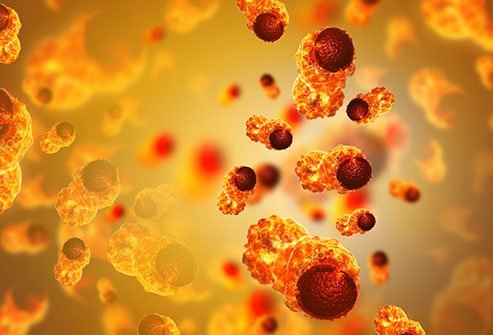
Cancer can originate in any human body part, but if cancer originates in the lungs, it is called lung cancer. In such conditions, the body’s cell growth does not restrict and goes out of control. Lung cancer starts in the lungs and later spreads to the lymph nodes or other human body organs, including the brain. Progressive cancer that is expanding to other organs can potentially spread to the lungs from any body part. Metastases, secondary malignant growth, are the spread of cancer cells from one organ to another. However, because the symptoms of lung cancer might be mistaken for those of other diseases, it’s critical that you consult your doctor or visit a cancer hospital for the diagnosis of the disease. Medicover hospital Vizag provides a screening facility for lung cancer and ensures the best effective treatment for the disease.
Lung cancer can even affect those who have never smoked. However, smoking is the most prevalent cause since it includes breathing a variety of hazardous compounds regularly. Exposure to air pollution and genetics are other common risk factors.
Know Also: Lung Cancer Causes Anemia?
Most common symptoms of lung cancer: Lung malignancies, however, typically have no early signs or have ambiguous early symptoms that patients disregard. A chest X-ray or CT scan during a normal examination or as a treatment for other conditions can diagnose about 25% of persons with lung cancer who have no symptoms. The signs of lung cancer that are identified are listed below –
- Cough: A short-term cough lasts for three weeks or less. But if it persists, then visiting a specialist should be a better choice.
- Fatigue: Fatigue is a general sensation of exhaustion or a lack of energy. It’s not the same as feeling tired or exhausted. But if it persists regularly, then it may result in the development of lung cancer.
- Weight loss: If you are losing weight constantly, then do visit a medical practitioner to get yourself checked for any prevailing disorder.
- Shortness of breath or wheezing: Wheezing is caused by swelling or constricting the throat or the airways to the lungs. Because your lungs can’t contain as much air when they’re swollen or mucus-filled, it can also cause shortness of breath.
- Coughing up phlegm that contains blood: The appearance of blood strains in the cough indicates the starting of lung cancer in most cases.
- Chest pain: Persistent chest pain that lasts long is another common symptom to schedule an appointment with the pulmonologist.
- Voice changes: After a cold or a lengthy period of inactivity, such as when you first get up in the morning, your voice might become hoarse. However, if you notice changes in your voice or someone else notices them, and your voice becomes deeper, hoarse, or raspier, you must see a doctor.
- Bone cancer: Bone pain is a common symptom of advanced lung cancer. Because most patients who get bone cancer are older, they may dismiss bone discomfort as a sign of aging. Although it is less prevalent, lung cancer can cause bone discomfort in the back, shoulder, arm, or neck.
Ignoring the lung cancer symptoms can cause irreversible damages: Any of the signs of lung cancer should not be overlooked. If you’re a smoker, tell your doctor if you’re not feeling well, even if the symptoms come and go. Consult your doctor to see if a screening test is appropriate for you so that lung cancer can be detected earlier before it causes any permanent damage. Family history should be with the doctor if you feel any change in your health condition. Early detection can be the difference between life and death when it comes to lung cancer.
Benefits of Lung cancer Screening: Early identification of lung cancer has a significant impact on survival rates. Lung cancer, on the other hand, might be difficult to identify because its symptoms are not distinctive. Coughing, shortness of breath, exhaustion, and weight loss are all symptoms of various ailments. As a result, many people are unaware they have lung cancer until it has progressed and reached advanced stages.
Thus, Lung cancer screenings are used to identify lung cancer in people who are at high risk but otherwise healthy. A team of medical experts at Medicover hospital Vizag provides lung cancer screening to determine lung cancer stage using CT scan and Positron Emission Tomography technologies.
Lung cancer screening is generally done in one of three ways.
- A lung cancer doctor may perform A physical examination to check for indicators of lung cancer such as wheezing, shortness of breath, cough, discomfort, and other symptoms.
- A sputum cytology examination includes examining a patient’s mucus under a microscope (sputum).
- CT scanning to get a detailed picture of the inside workings of the lung using a spiral CT scanner.
Doctors consider you’re in danger if you’re 55-77, smoked a pack a day or more for 30 years, and haven’t smoked or stopped in the last 15.
You can browse the best lung cancer treatment hospital in India on Credihealth and make an appointment with the best cancer doctor. Medicover Hospital Vizag is associated as a partner hospital with Credihealth where you can check the doctor list of the medicover hospital.
To get medical assistance and a second opinion on any treatment, you can request a call-back at 8010-994-994 from Credihealth’s in-house expert.